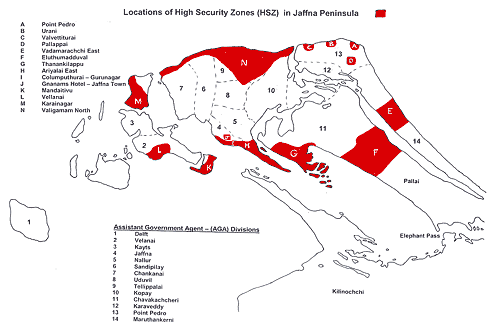Ilankai Tamil Sangam29th Year on the Web Association of Tamils of Sri Lanka in the USA |
|||||
 Home Home Archives Archives |
Sri Lanka Seeks Global Helpby Guy Dinmore, Financial Times, London, March 21, 2007
Buried well down on the international agenda, Sri Lanka’s renewed descent into a particularly brutal conflict between the government and Tamil separatists has seen a sharp increase in killings and human rights abuses committed by both sides since a tenuous ceasefire disintegrated last year. Sri Lanka’s government is seeking stronger commitments of international support in its long war with the Liberation Tigers of Tamil Eelam (LTTE), particularly in cutting off funding raised through front companies and criminal gangs among the Tamil diaspora. But analysts said a mission to Washington last week by Foreign Minister Rohitha Bogollagama was undermined by the government’s deteriorating human rights record and concerns that hardliners were seeking a military solution at any cost. Especially damaging were accusations that the government has allied itself with the breakaway Karuna rebel group which, like the LTTE, uses child soldiers. Even though the LTTE is designated a terrorist organisation in several countries, US and European pre-occupation with the threat of Islamist extremism at home also means few resources are left to deal with the separatists’ fund-raising for a war between mostly Hindu Tamils and the Buddhist Sinhalese majority. Although the conflict has had limited global repercussions, it is no less globalised. Sri Lanka’s military said it recently sank a ship which had North Korean connections and was bound for the LTTE carrying over 1,500 tonnes of Chinese-made weaponry. In an interview with the FT, Mr Bogollagama insisted the government did not believe in a military solution. He called on the international community to bring the LTTE back to the negotiating table where the government, through consultation with other parties, would present proposals involving constitutional changes and a federal devolution of power. “We have zero tolerance for child abductions,” he said. The Karuna faction, based in Batticaloa in the east, had released 20 out of an estimated 210 child soldiers to the United Nations, he said, conceding that the breakaway rebel group, which is now working with government forces, had committed human rights violations. The minister insisted that a presidential commission and a group of international eminent persons would fully investigate abuses of the law, including disappearances and extra-judicial killings. Human Rights Watch last week said the government had made no serious effort to investigate and urged Condoleezza Rice, US secretary of state, to take action. It said that while for many years it had criticised the LTTE, it noted the “very disturbing trend of recent months” of growing involvement by the military, police and proxy armed groups in serious violations of the laws of war. “When you unleash the dogs of war this is what happens – targeted killings, indiscriminate shelling, dirty work by Karuna,” commented Fred Abrahams, researcher with Human Rights Watch who recently returned from Sri Lanka where he saw government forces turning a blind eye to the child soldiers recruited by Karuna. The US could do more to promote a settlement, he said. Ms Rice did raise human rights concerns in her meeting with Mr Bogollagama on Friday, according to a Sri Lankan statement. US officials did not comment. Robert Templer, Asia director of the International Crisis Group, said the US was sending mixed messages. He said the US raises human rights concerns and “is not giving them a free hand”, yet is developing a military relationship which he described as “murky”. Sri Lankan officials said a recent military co-operation agreement reached with the US involved logistics, training of Sri Lankan personnel, and access to military bases. Analysts said it was possible the agreement also included communications and intelligence sharing.
| ||||
